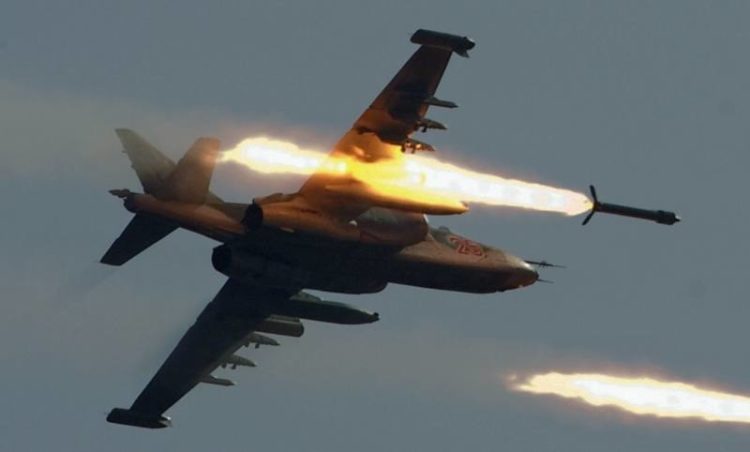Defence
Nigeria facing new dimension of threats – Defence Minister

The Minister of Defence retired Maj.-Gen. Bashir Magashi, says the prevalence of the various security threats in Nigeria has adversely affected food security thereby posing a new dimension of threats to the country.
Magashi stated this at the opening of a retreat for the Defence Advisers/Attaches Conference, organised by the Defence Intelligence Agency (DIA) on Monday in Abuja.
The conference/retreat has the theme, ‘’Advancing Counterterrorism Efforts through Enhanced Inter-Agency Cooperation: A Whole of Government Approach”.
He said the attacks by Boko Haram Terrorists and Islamic State in West Africa Province (ISWAP) in the North East as well as banditry and herder/militia in the North West and Central had continued to pose serious security threats to Nigeria.
According to him, the littoral states in the South-South region are plagued with illegal oil bunkering, piracy and militancy while the South-East is challenged with secessionist activities of the Indigenous People of Biafra (IPOB).
He added that the South-West region is equally faced with secessionist inclination driven by ethnic agitators as well as occasional tension between herders and farmers.
“The threats currently facing Nigeria and understanding their socio-geographic context is pivotal for adapting appropriate and lasting counter-measures.
“Regrettably, the prevalence of these threats has continued to endanger not only national security and economic growth but also food security.
“In particular, food security has been adversely affected with the attendant rise in the prices of foodstuff across the country which portends a new dimension of threat.
“This makes it imperative for the various security agencies in the country to continue to collaborate to tackle these menaces in order to create an enabling atmosphere for economic activities to thrive and to attract Foreign Direct Investment.
“It also means that the security agencies must explore all avenues within their respective systems to come up with innovative ways of identifying and confronting the challenges facing us as a nation,” he said.
Magashi said that the Defence Advisers/Attachés system had crucial roles to play by forging understanding and cooperation with the security and defence architectures in their respective countries of accreditation.
He said the conference would provide participants with the opportunity to appraise the shared vision of stemming the tide of insecurity through the integrated efforts of all government entities, the objectives of the government approach.
He said the recent achievement of the military and security agencies who took the fight from all angles to the doorsteps of the adversaries leading to the surrender of over 14,000 terrorists, is reassuring.
The National Security Adviser (NSA), retired Maj.-Gen. Babagana Monguno said the defence Attachés/Advisers were considered critical stakeholders in surmounting the myriad of security challenges facing Nigeria.
Monguno, represented by his Principal General Staff Officer, Maj.-Gen. Abubakar Ndalolo said that Nigeria had been adopting both kinetic and non-kinetic approaches in dealing with security challenges, adding that both approaches had been yielding results.
He said that the government also laid emphasis on the integrated approach, which recognised the roles of ministries, departments and agencies as well as the entire society in “tackling our security challenges”.
According to him, this involves the participation of critical stakeholders from different sectors of the society, such as religious actors, youths, teachers, women, civil society, media, law enforcement as well as security and intelligence agencies.
The Chief of Defence Intelligence (CDI), Maj.-Gen. Samuel Adebayo said that the conference is an annual event that affords DIA a medium to assiduously review the activities of all its defence sections.
Adebayo said the conference was also an avenue to identify new lessons and challenges, discuss modalities for overcoming such challenges as well as strategies for the future.
According to him, this conference comes at a time when the nation is facing unusual daunting security challenges characterised by a volatile, uncertain, complex and ambiguous environment.
“That is why the theme for this year’s Conference, “Advancing Counterterrorism Efforts through Enhanced Inter-Agency Cooperation: A Whole of Government Approach”, was carefully chosen.
“This theme will undoubtedly guide our deliberations and contributions to the current efforts of the Federal Government towards attaining an approach in our counter-terrorism strategy and create an atmosphere for sustainable national security and development.
“It is therefore in this regard that I urge the participants in this conference to address the issues squarely and deliberate with open minds to ensure that the objectives of the conference are achieved,” he said.
The CDI noted that the Nigerian armed forces had made tremendous progress in confronting the nation’s security challenges as evident from the massive surrendering of terrorists in the North East and intensified operations against bandits in the North West and North Central regions.
He said the fluid nature of the threats posed by the enemies had reinforced the need for collaborative efforts, be it government to government, within the security Services and even through foreign diplomats and Defence Attachés System (DAS).
According to him, the need for a continuous reappraisal of our strategies, operational tactics and methods of intelligence gathering and sharing in order to efficiently deal with our security challenges, is therefore paramount.
He said the forum would provide the opportunity to tap from the vast experiences of the participants.
The Chairman, National Drug Law Enforcement Agency (NDLEA), retired Brig.-Gen. Buba Marwa urged attachés to use their position to support the fight against drug abuse and trafficking in Nigeria.
Marwa said there is a strong connection between drugs and insecurity, saying that taking drugs out of the hands of peddlers would reduce the effects on security.
He said the recent seizure made by the agency revealed that large quantities of drugs used by criminals are finding their way into the country.
Defence
Shettima Leads Nation to Honour Fallen Heroes at 2025 Armed Forces Remembrance Day

Vice President Kashim Shettima on Wednesday led a distinguished delegation, including Senate President Godswill Akpabio, members of the Federal Executive Council, National Assembly, service chiefs, and the diplomatic corps, to pay tribute to the nation’s fallen and living heroes.
The solemn occasion, held at the National Arcade in Abuja, featured a wreath-laying ceremony marking the climax of the 2025 Armed Forces Celebration and Remembrance Day (AFCRD).
Vice President Shettima was the first to lay a wreath, followed by Senate President Akpabio, Deputy Speaker of the House of Representatives Benjamin Kalu (representing Speaker Tajudeen Abbas), and Chief Justice of Nigeria Justice Kudirat Kerere-Ekun.
Other participants in the ceremony included Minister of Defence Muhammed Badaru, Minister of the Federal Capital Territory Nyesom Wike, Minister of State for Defence Bello Matawalle, and service chiefs led by the Chief of Defence Staff, Gen. Christopher Musa. The Inspector-General of Police, Kayode Egbetokun, also joined in paying respects.
Representatives of the diplomatic corps, the Nigerian Legion, and widows of fallen soldiers, led by Veronica Aluko, President of the Military Widows Association (MIWA), also laid wreaths to honour the heroes.
A traditional military salute followed, with the firing of three volleys, a symbolic act rooted in the age-old battlefield custom of pausing hostilities to retrieve the fallen.
The Vice President capped the event by signing the anniversary register and releasing ceremonial white pigeons, symbolizing peace and freedom.
The week-long celebration began on January 10 with a Jumma’at prayer at the National Mosque, followed by an interdenominational Christian service on January 12. Other highlights included a social and awards evening for military personnel, a regimental dinner and awards night for officers, and a lecture and art exhibition hosted by Defence Headquarters.
This year, the celebration, renamed Armed Forces Celebration and Remembrance Day, aims to honour both fallen heroes and serving personnel for their dedication to national peace and security.
Observed annually on January 15 in Nigeria, the day commemorates those who sacrificed their lives in global conflicts, including the First and Second World Wars, the Nigerian Civil War, peacekeeping missions, and internal security operations. It also serves as a platform to honour veterans and garner support for the families of the fallen.
As Vice President Shettima noted during the event, “Their sacrifices remind us of the cost of freedom and the unwavering commitment required to preserve our nation’s unity and peace.”
Defence
Armed Forces Remembrance Day: Makinde Reaffirms Commitment to Fallen Heroes’ Families

Gov. Seyi Makinde of Oyo State has reiterated his administration’s unwavering support for widows and children of fallen heroes, as well as the welfare of vulnerable ex-servicemen.
The governor made this pledge during the grand finale of the Armed Forces Remembrance Day celebration, held on Wednesday at the Arcade, Government House, Agodi, Ibadan.
Makinde emphasized that the state government would prioritize the welfare of those who had sacrificed for the nation’s unity and security.
“The fallen heroes paid the supreme price to ensure the country remained one, safe, and secure,” Makinde said.
He also commended the service commanders, officers, and men of all security agencies operating in the state for their dedication to maintaining peace and fostering economic growth.
“They are supporting this administration to maintain an environment where economic activities can thrive,” he added.
The chairman of the Nigerian Legion, Oyo State Command, Julius Ogunkojo, called on the government to address the needs of officers and men of the armed forces. He also appealed to well-meaning Nigerians to assist ex-servicemen in achieving better living standards.
The event featured the symbolic firing of rounds volley, laying of wreaths, and the release of ceremonial pigeons by the governor, symbolizing peace and unity.
The Armed Forces Remembrance Day, celebrated annually, honours the sacrifices of past and present military personnel for the nation’s security and sovereignty.
Aviation
NAF airstrikes destroy terrorist food depot, kill scores in Lake Chad

This is contained in a statement by the Director, Public Relations and Information, Nigerian Air Force (NAF), Air Commodore Olusola Akinboyewa, on Monday in Abuja.
Akinboyewa said the NAF aircraft carried out the operations in Nov. 23 on the strategic location, identified through meticulous intelligence efforts.
He said the location served as a critical food storage site and a sanctuary for terrorist commanders and fighters.
He added that intelligence had previously linked terrorists in the location to recent attacks, including the assault on troops in Kareto on Nov. 16.
According to him, the NAF fighter jets, in response, launched a robust air interdiction mission, destroying identified structures used as storage facilities and neutralising terrorists on-site.
“Mop-up operations using cannons ensured the complete elimination of fleeing hostile elements.
“The operation’s success was made possible by extensive Intelligence, Surveillance, and Reconnaissance (ISR) missions conducted over several days, confirming the presence of active terrorist structures camouflaged under dense vegetation.
“The destruction of the terrorist enclave, including food storage facilities, severely disrupted their logistical operations, while the neutralisation of a significant number of fighters diminished their capacity to launch future attacks,” he said.
Akinboyewa said the mission had demonstrated the NAF’s unwavering commitment to defending our nation and people, acting singly and supporting surface forces in counterterrorism operations.
He reiterated the NAF’s commitment to sustain robust independent and joint operations until all enemies of Nigeria’s prosperity and wellbeing are brought to justice.
-

 Headlines4 years ago
Headlines4 years agoFacebook, Instagram Temporarily Allow Posts on Ukraine War Calling for Violence Against Invading Russians or Putin’s Death
-

 Headlines4 years ago
Headlines4 years agoNigeria, Other West African Countries Facing Worst Food Crisis in 10 Years, Aid Groups Say
-

 Foreign3 years ago
Foreign3 years agoNew York Consulate installs machines for 10-year passport
-

 News1 year ago
News1 year agoZero Trust Architecture in a Remote World: Securing the New Normal
-

 Entertainment3 years ago
Entertainment3 years agoPhyna emerges winner of Big Brother Naija Season 7
-

 Headlines1 year ago
Headlines1 year agoNigeria Customs modernisation project to check extortion of traders
-

 Economy2 years ago
Economy2 years agoWe generated N30.2 bn revenue in three months – Kano NCS Comptroller
-

 Entertainment2 years ago
Entertainment2 years agoMovie download platform, Netnaija, announces closure

















